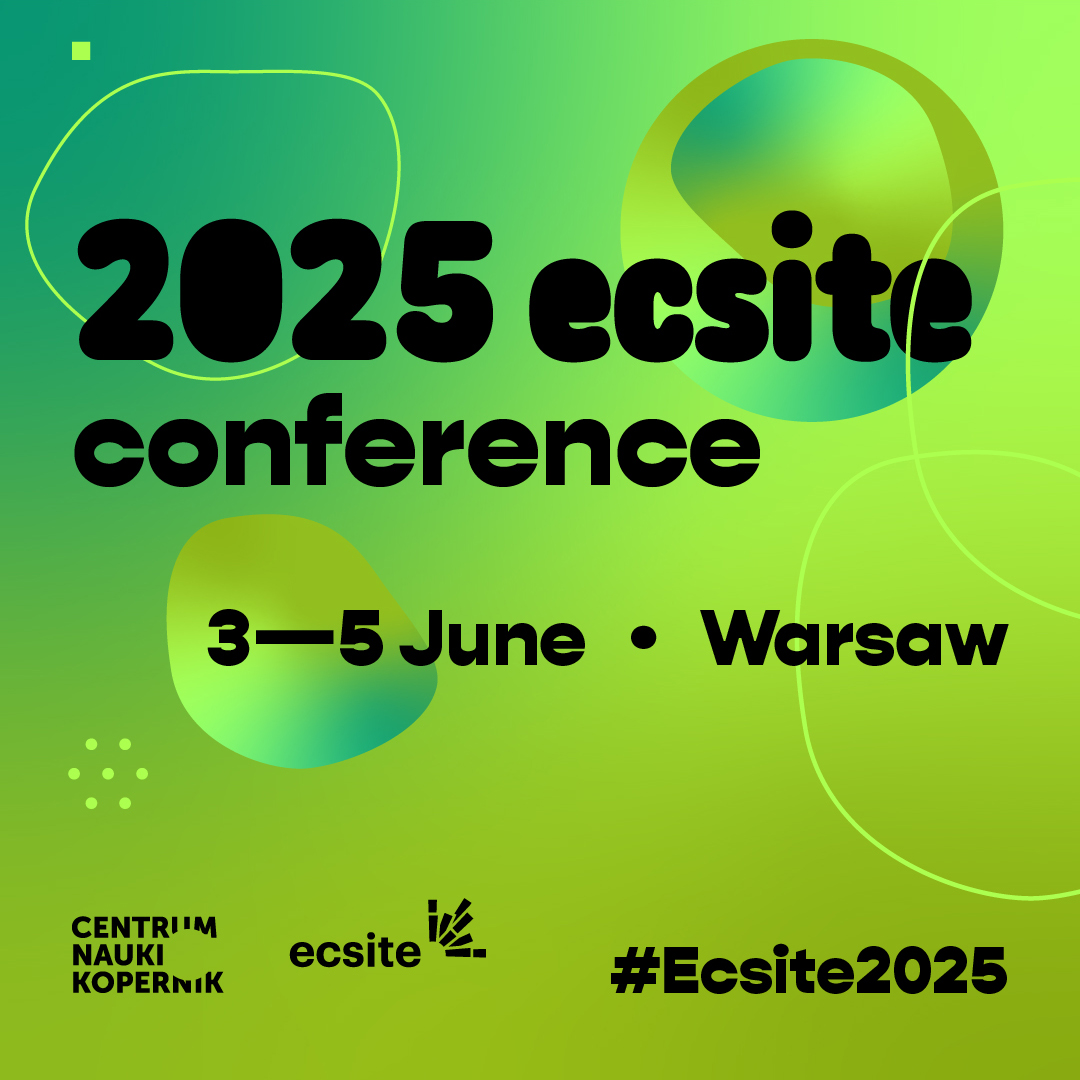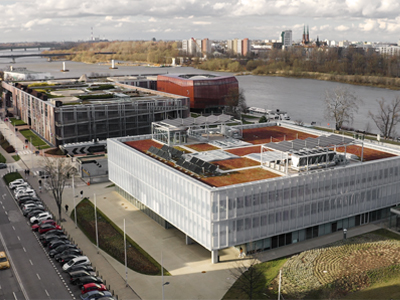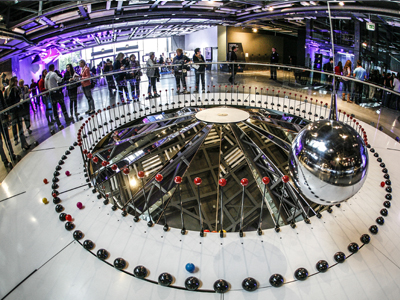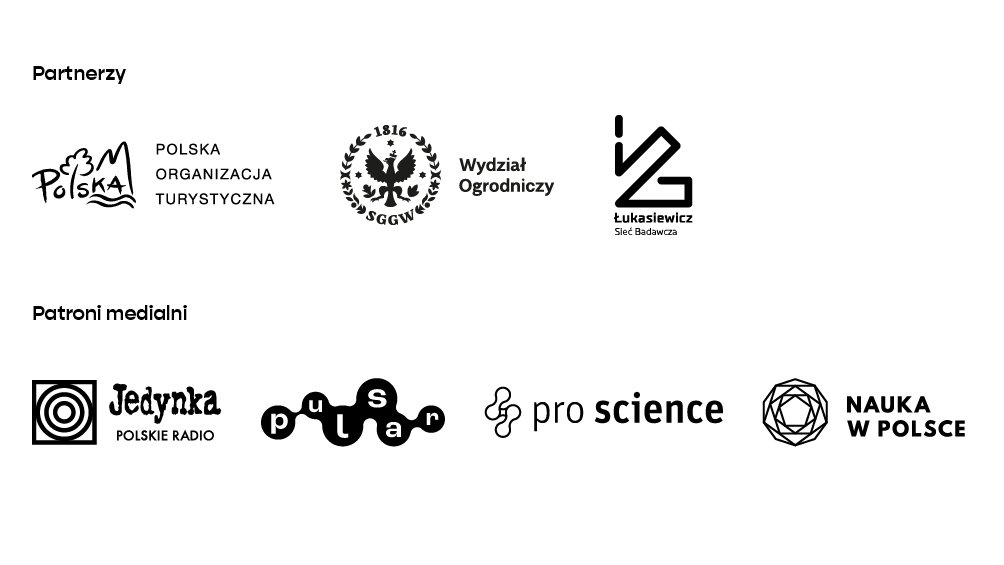
Ecsite 2025
3–5 June 2025, Copernicus Science Centre
The Ecsite conference is the largest global gathering of science communicators and enthusiasts from more than 50 countries. It is a unique opportunity to share knowledge, to learn and to make valuable professional contacts.
On 3 June 2025, around 1000 science communicators and enthusiasts from over 50 countries will come to our city. For three days, we will be hosting the prestigious European Network of Science Centres and Museums (Ecsite) conference.
The Ecsite network connects science communication professionals from more than 400 institutions. This large community carries out joint projects, shares know-how and tools, and organises events – including a conference held in a different country each year.
The language of the conference is English.
The Ecsite conference brings together not only staff from science centres and museums, but also educators, exhibition developers, and representatives of companies working in the field of science development. Over three days, the Copernicus will host 90 parallel sessions (related to, among other things, an overview of the latest exhibitions, services, and products), six intensive workshops, two plenary lectures, as well as meetings of practitioners and a trade show.


Ecsite has been part of our family since the very beginning of our institution, when we were still without formal status, exhibitions or a building. We aspired to be the first science centre in Poland, preparing to take a bold step into the unknown. With Ecsite’s support and collaboration, we felt more confident and secure. We drew on the network's experiences, while gradually building our own. We also found inspiration and solutions at Ecsite's annual conferences. In 2007, we expressed our interest in hosting one of these events. At that point, all we had was a visual representation of our future building and a mark on the map. Nonetheless, we were entrusted with the prestigious role of hosting the conference, which took place in the newly opened Copernicus Science Centre in 2011. That was a milestone in our history.
In 2025, in the 15th anniversary of the Copernicus Science Centre, we are honoured to host the Ecsite conference for the second time. Much has changed since our last time in the role of hosts. Few of our current exhibits date back to 2010. We have entirely new exhibitions that we design and build ourselves. Our flagship display, “The Future is Now”, addresses contemporary social issues related to the development of digital technologies, modern medical methods, and the climate crisis.
We have specialised in creating exhibits, not only for our exhibitions but also for other institutions. The exhibits are elaborated through a research and development process, offering interactivity and allowing users to experience specific phenomena. They cover various aspects of the natural world, like motion, light, and the human organism.
By traveling across Poland with our original mobile exhibitions and shows, including astronomy shows, we have expanded the reach of our activities. This permits us to bring science to places far from major urban centres and science hubs, as part of the Science for You programme. We also run the SOWA Initiative (in English, AIDA Initiative – Areas of Imagination, Discovery, and Activity). It is a partnership programme that enables local institutions to enrich their offer with exhibitions we have prepared, along with activities that support independent exploration of the world.
We are committed to developing innovative solutions that are transforming education and to researching learning processes. We are supported in this work by the infrastructural and technological resources of our research and development centre.
Reality constantly presents science centres with new challenges, prompting transformation. In times when opinions are mistaken for facts, arguments are ignored, and science’s authority is questioned, nurturing critical thinking and the ability to collaborate is more important than ever. The ability to investigate, gather and analyse information, draw conclusions and solve problems is essential to understanding the world around us.
Science helps solve humanity’s most pressing challenges, provided its findings are applied. That is why science centres play a vital role in initiating discussions on socially relevant issues. At the Copernicus Science Centre, we focus on global warming and environmental sustainability, public health, and the societal implications of emerging technologies, particularly artificial intelligence and biotechnology.
Grateful for the support we received in our early years, we now extend a helping hand to institutions starting or planning their science communication initiatives in Poland and Eastern Europe. We share our experience and invite others to join the communities and organisations we co-create. We have also initiated the creation of a “Polish Ecsite”. Established in 2013, the Society and Science Agreement (SPiN) brings together institutions united by a common goal, fostering a knowledge-based society driven by education, science, technology and innovation.
Poland is home to 30 science centres and a thriving ecosystem of institutions, organisations and individuals dedicated to science communication. The SPiN network currently has 39 members. Each year, on the anniversary of its founding, we organise a nationwide event for the public, held online and sometimes also in the headquarters of participating institutions. We also meet at the annual "Interaction–Integration" conference, inspired by the Ecsite model. We look to the future with optimism, but we also strive to shape it together with the entire community of people who create, communicate, and promote science.

